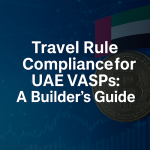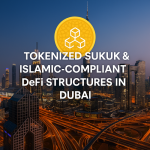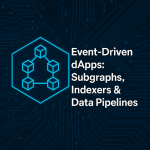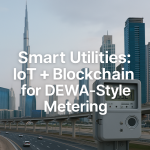The gaming industry continues to grow at an unprecedented pace, ushering in a new era of digital interaction—Web3. Powered by blockchain technology, Web3 is set to radically transform how players experience, engage with, and enjoy video games. As a global leader in technological innovation, Dubai actively drives Web3 adoption, especially in gaming. From decentralized gaming ecosystems to play-to-earn models, Web3 and gaming in Dubai offers massive potential for both players and developers in the city of future.
I chaired a meeting of the Higher Committee for Future Technology and Digital Economy to review the progress of upcoming projects and initiatives. We launched the Dubai Program for Gaming 2023, with great ambitions of positioning Dubai among the top 10 cities in the global gaming… pic.twitter.com/ch2hIEZBGJ
— Hamdan bin Mohammed (@HamdanMohammed) November 2, 2023
In this article, we’ll examine how Web3 reshapes the future of gaming in Dubai, influences the gaming community, and impacts what players and developers can expect from this rapidly evolving space. We’ll also highlight Dubai’s initiatives to establish itself as a hub for Web3-driven gaming and showcase how these innovations position the city as a focal point for the next wave of gaming technology.
Understanding Web3 and Its Role in Gaming
To fully grasp the role of Web3 in shaping the future of gaming, it’s essential to understand what Web3 entails and how it contrasts with traditional Web2 gaming experiences.
1. What is Web3?
Web3 represents the third iteration of the internet, moving beyond the centralized platforms of Web2 (think Facebook, Google, and YouTube) to a decentralized and blockchain-powered ecosystem. Unlike Web2, where centralized entities store and control data, Web3 enables peer-to-peer interactions and gives users full ownership of their data and digital assets.
At the heart of Web3 lies blockchain technology, which enables transparent, secure, and tamper-proof transactions. Web3 also introduces concepts like cryptocurrencies, non-fungible tokens (NFTs), and decentralized applications (dApps)—all of which are having a profound impact on the gaming industry.
2. Blockchain and Gaming
Blockchain offers a decentralized, immutable ledger that ensures the transparency and security of in-game transactions. This is important because it allows for true ownership of in-game assets, such as skins, weapons, or even entire characters. In Web3-powered games, players can buy, sell, or trade these assets across different platforms without relying on a central authority to facilitate the transactions.
Blockchain also enables the creation of play-to-earn (P2E) models, which reward players with real-world value for their time and effort spent in games. By integrating blockchain and Web3 into the gaming ecosystem, players can not only enjoy the game but also generate income from their in-game activities.
Dubai: A Hub for Web3 Innovation
: !
Exciting news from the heart of Dubai! The team behind https://t.co/lt5z6IezT6 just had a groundbreaking meeting with backers, investors, and partners, paving the way for a… pic.twitter.com/9CMvbEmsru
— Dorex.io (@dorex_io) November 5, 2024
Dubai has long been famous for its commitment to innovation, especially in emerging technologies. The city is making significant strides to become a global leader in Web3 development, with a focus on blockchain, artificial intelligence, and smart cities. As a result, Dubai’s crypto friendly policies and its impact on the Web3 ecosystem is increasingly making the city an attractive destination for Web3 gaming companies and entrepreneurs.

1. The Dubai Blockchain Strategy
In 2020, Dubai launched the Dubai Blockchain Strategy, which aims to make Dubai the first city fully powered by blockchain by 2025. This forward-thinking strategy seeks to enhance the city’s governance, services, and transactions by adopting blockchain technology across various sectors, including gaming. Dubai’s commitment to Web3 is not just about implementing blockchain for business transactions; it’s about fostering an environment where developers and gamers can thrive in a decentralized, transparent ecosystem.
2. Dubai Future Foundation and Innovation
The Dubai Future Foundation plays a key role in promoting innovation within the emirate, supporting projects that integrate emerging technologies like Web3. Through various initiatives, the foundation is positioning Dubai as a major hub for the development of decentralized applications (dApps) and blockchain-powered gaming experiences. This support is crucial for attracting gaming companies and developers to the region.
In addition to supporting Web3 gaming startups, Dubai Future Foundation is also fostering collaborations between tech giants, local governments, and venture capitalists to create a thriving ecosystem for blockchain and Web3 applications. The foundation’s goal is to ensure that Dubai remains at the forefront of digital transformation, particularly in the gaming and entertainment sectors.
3. Dubai’s Investment in Digital Economy
The government of Dubai has recognized the importance of the digital economy in shaping the future of the city. Through initiatives like the Dubai Digital Economy Strategy, the government is incentivizing the Web3 growing ecosystem and blockchain-based businesses in Dubai, including those in the gaming industry. With tax incentives, innovation hubs, and world-class infrastructure, Dubai is creating the ideal environment for Web3 gaming startups to flourish.
The Future of Web3 in Gaming: What to Expect
As the future of Web3 gaming in Dubai continues to unfold, several key trends are about to shape the industry. Let’s explore some of the exciting developments on the horizon.

1. Play-to-Earn (P2E) and Gaming as a Source of Income
One of the most significant shifts Web3 brings to gaming is the play-to-earn (P2E) model. Traditional gaming has always been about playing for entertainment, with in-game achievements and rewards being purely cosmetic or for personal satisfaction. However, with Web3, players can earn real-world value for their time spent in the game.
Through the integration of cryptocurrencies and NFTs, players can earn tokens, digital collectibles, or even assets that have real-world monetary value. These tokens can be traded, sold, or used to access in-game content. The P2E model allows players to monetize their gaming experiences, making it possible to earn a living by playing games.
Dubai is well-positioned to capitalize on this trend, with the city’s tech-savvy population and government support for blockchain initiatives. Gaming companies in Dubai can harness the potential of Web3 to create P2E experiences that not only entertain but also empower players economically.
2. True Ownership of In-Game Assets
In Web3 gaming, true ownership is undoubtedly one of the most exciting concepts for players. Thanks to blockchain technology, assets within the game—such as skins, avatars, weapons, and other digital collectibles—are represented by non-fungible tokens (NFTs). Notably, these NFTs function as unique, verifiable digital assets that players can buy, sell, and trade across different platforms.
This marks a significant shift from centralized ownership, where a gaming company controls all in-game assets, to decentralized ownership, where players truly own their digital belongings. As a result, this transformation is revolutionary. Moreover, in Dubai, this concept of digital ownership aligns perfectly with the city’s forward-thinking approach to digital economies and blockchain innovation. Looking ahead, the future of Web3 in Dubai will likely feature an increasing number of gaming platforms where players can use their NFTs across multiple games and marketplaces.
3. Interoperability Across Games and Platforms
Web3 gaming opens up the possibility of interoperability across different games and virtual worlds. Through the use of NFTs and blockchain, assets from one game can be used in another. For example, a player’s rare NFT sword from one game could be used in a completely different game that supports the same blockchain infrastructure.
This level of interoperability enhances the gaming experience by creating a unified, cross-game ecosystem. In Dubai, where innovation is at the heart of the city’s vision, we can expect to see an increasing number of gaming platforms that promote interoperability, allowing players to use their digital assets across multiple experiences.
4. Decentralized Autonomous Organizations (DAOs) in Gaming
Another exciting development in Web3 gaming is the rise of Decentralized Autonomous Organizations (DAOs). DAOs are organizations that are run by smart contracts, allowing members to vote on key decisions and participate in the governance of the platform. In the gaming space, DAOs can be used to empower players, enabling them to vote on game development, community guidelines, and even reward distribution.
In Dubai, where blockchain adoption is encouraged by the government, we’re likely to see gaming communities and developers adopting DAO structures to give players more control over the direction of games. This democratic model not only fosters community engagement but also aligns with Dubai’s vision of decentralizing control and empowering individuals.
5. Virtual Real Estate and the Metaverse
The concept of the metaverse—a collective virtual shared space made up of interconnected digital environments—has gained considerable traction in the Web3 space. As a result, the future of gaming and the metaverse will inevitably converge, allowing players to own and develop virtual real estate within immersive digital worlds.
Meanwhile, Dubai is already making strides toward becoming a key player in the metaverse, as the government actively explores initiatives that use blockchain and virtual real estate as part of its digital economy strategy. Furthermore, with the rapid development of virtual worlds, Dubai-based gaming companies will likely be at the forefront of creating metaverse experiences where players can build, socialize, and even earn real-world value.
6. Esports and Web3 Integration
Dubai has emerged as a global hub for esports events, and the future of Web3 in Dubai’s esports scene looks promising. With Web3’s integration, esports tournaments could evolve by offering players cryptocurrency-based rewards or using NFT tickets for entry. This would open up new monetization options for esports organizations and players, while enhancing the fan experience with tokenized collectibles and digital assets.
7. Game Development and Blockchain Tools
As Web3 gaming continues to grow, there will be an increasing demand for tools and platforms that allow developers to create decentralized games. Dubai’s commitment to fostering innovation means that the city will likely become a hotbed for Web3 game development tools, making it easier for developers to integrate blockchain features like NFTs, smart contracts, and P2E functionality into their games.
Conclusion
The future of Web3 in Dubai is bright, especially in the gaming sector. As Dubai embraces Web3 technologies, the gaming landscape will shift towards decentralized models where players have true ownership of their assets, can earn real-world value, and interact in cross-game ecosystems.
For both players and developers, the opportunities in Web3 gaming are vast. As the industry continues to evolve, Dubai will undoubtedly play a central role in shaping the future of the gaming world.
Websima, as the leading blockchain service provider in Dubai, is more than happy to help, if you are planning to start a blockchain-based business in Dubai. Blockchain, crypto and web3 web and website development, smart contract programming and development, Blockchain, Web3 and crypto company establishment are just a few out of many services that we provide. Feel free to contact us to book for a free consultation meeting with our talented team.





